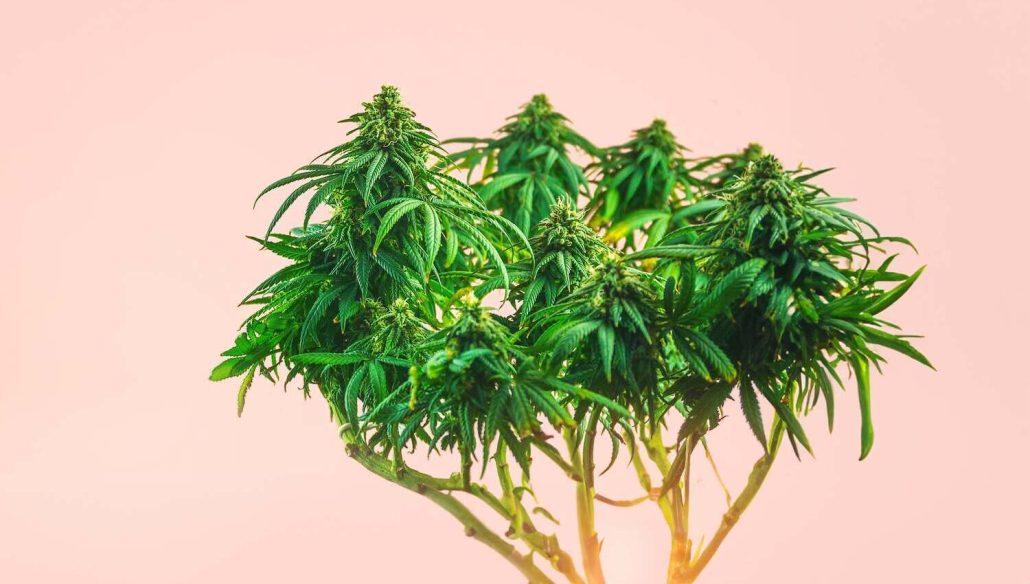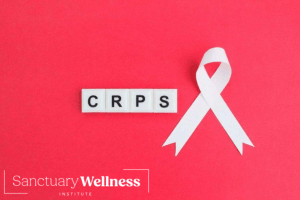- Jake Peter
- Published: December 9, 2021
- Updated: August 2, 2024
- Fact-checked by Dr. Desiree Granados

There are a number of factors that can influence how long cannabis remains in your system that include the plant’s type of strain to the frequency and amount being consumed.
One of our medical marijuana doctors at The Sanctuary Wellness Institute, Dr Megan Horsham, had this to say: “On average, marijuana can be detected in urine for a month. Vaping and smoking can cause effects for 1-4 hours. Anything oral/edible can be 10-12 hours. Sublingual 4-6 hours.”
Factors Affecting How Long Marijuana Stays in Your System
There are a number of factors that affect how long marijuana stays in your system, including:
- How Much you Consume: The amount of cannabis you consume affects how long it stays in your system. The more you consume, the longer it will stay. This is because THC is stored in the fatty tissues of your body and builds up over time.
- Age: As you get older, the body releases enzymes at a higher rate. This means there will be more THC metabolites (chemicals produced as a result of drug metabolism) to pass through and this makes it easier for them to be detected by the testing process.
- Gender: Women tend to produce less of an enzyme known as CYP2C19 and this makes it harder for their bodies to metabolize THC compared to men.
- Weight:Those who are very overweight typically have a faster metabolism. As such, they’ll eliminate THC from their bodies faster than people who are lighter or normal weight.
- Body Mass Index (BMI): This refers to your height-to-weight ratio and impacts how quickly you’ll metabolize THC.
- Frequency of Use: The more often you consume marijuana, the longer it will stay in your system. This is because the THC accumulates over time.
- Method of Consumption: Smoking cannabis results in a faster “high” than eating it. However, eating it produces a stronger high.
- Type of Cannabis: There is no scientific evidence to support that one type of cannabis is more potent or has different effects on the body than another.

Testing for Cannabis in Your System
There are various ways to test for cannabis in the system but the most common is through a urinary drug screen. This test looks for metabolites that are specific to THC. The test can be done with a urine sample or a saliva swab.
The most accurate way to test for cannabis is through a blood test. This is because it can detect the presence of THC in your system within minutes after you’ve smoked or consumed marijuana.
If you don’t smoke that much or haven’t smoked in a while and then start smoking again, it’s possible that THC won’t show up on drug tests. This is because each time you smoke weed, THC gets stored in fatty cells and any traces of previous usage get flushed out by natural processes like breathing and sweating.
However, there are ways to get rid of this storage like exercise and drinking lots of water, which will make your body expel these substances through urine. If you want to speed up this process even more, try taking activated charcoal supplements along with lots of fruit pectin-rich foods which help flush out unwanted toxins from the body.
States Where We Offer Medical Marijuana Card Services
How we reviewed this article:
- National Library of Medicine
https://www.ncbi.nlm.nih.gov/pmc/articles/PMC3570572/ - Urine Testing for Detection of Marijuana
https://www.cdc.gov/mmwr/preview/mmwrhtml/00000138.htm
Current Version
August 2, 2024
Written By
Jake Peter
Fact-checked By
Dr. Desiree Granados
Editorial Process
Our Editorial Process
First Published
December 9, 2021
Written By
Jake Peter
Fact-checked By
Dr. Desiree Granados
Editorial Process
Our Editorial Process

Jake Peter received his journalism degree from Emerson College and has been writing content for the Sanctuary Wellness Institute since 2021. He is passionate about all things cannabis.







